On January 20 2019, the 2019 International Youth Leadership Finance Summit hosted by SAIF Master of Finance (MF) Program of Shanghai Advanced Institute of Finance (SAIF) at Shanghai Jiao Tong University, officially kicked off.

At the Opening Ceremony of the Summit, Prof. Chun Chang, Executive Dean and Professor of Finance at SAIF, gave a welcome speech. He also interpreted the trends of Artificial Intelligence (AI) and the financial sector as well as the topics of the Summit. Prof. Zhan Jiang, Faculty Director of SAIF MF Program and Associate Professor of Finance at SAIF, introduced the MF Program and the upcoming MF-FinTech track in 2019. Dr. Jing Xiao, Chief Scientist of Ping An Group, delivered multi-dimensional updates on AI and its latest developments in finance and other industries.
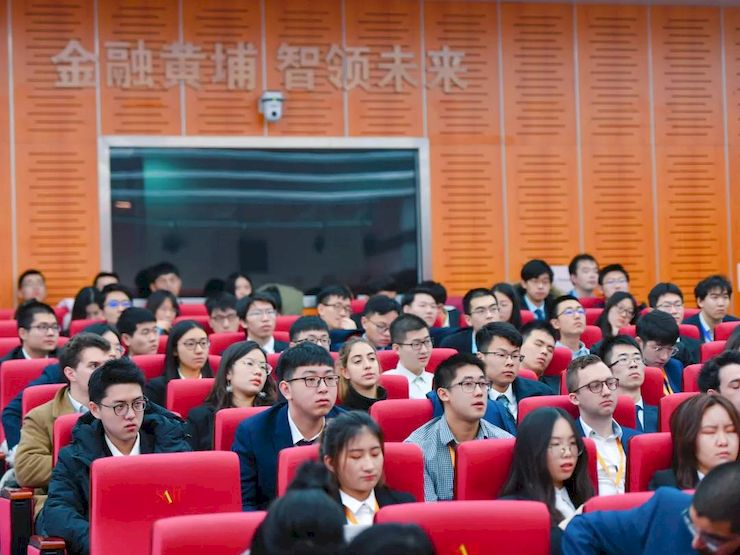
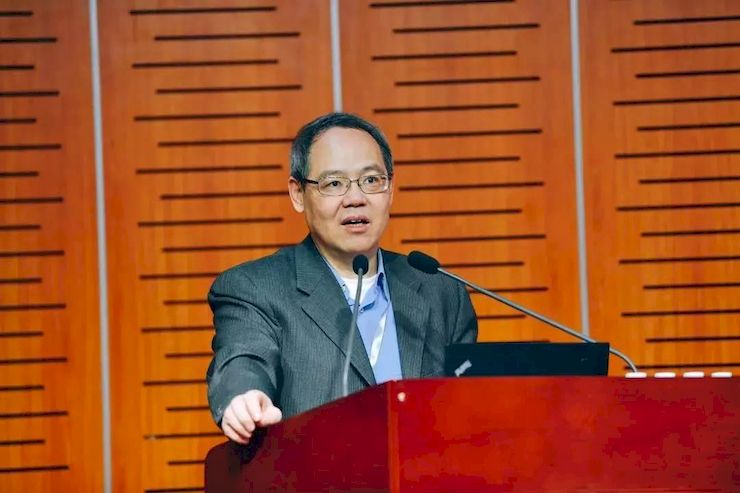
Chun Chang: The combination of finance and technology creates a new roadmap to better serve the real economy
Prof. Chun Chang, Executive Dean and Professor of Finance at SAIF, first delivered a speech, revealing that the theme of the Summit was the integration of AI and capital markets. The development of finance has always been inseparable from the evolution and innovation of technologies, which leads to the concept of FinTech. Compared with other developed economies, although the financial sector is still in the development stage in China, it is far ahead in some areas of FinTech, such as mobile payment. Therefore, the combination of finance and technology will create a new roadmap for financial services to better serve the real economy.
In addition, Prof. Chang also gave a brief overview of SAIF, which focuses on finance and hi-tech and has developed a number of financial programs in the past decade. Among them, SAIF MF Program has become a global leader with AACSB accreditation. The MF-FinTech track will also be launched this year.
Finally, Prof. Chang noted that FinTech is a driving force for both China and the world economy, which represents a very promising prospect.
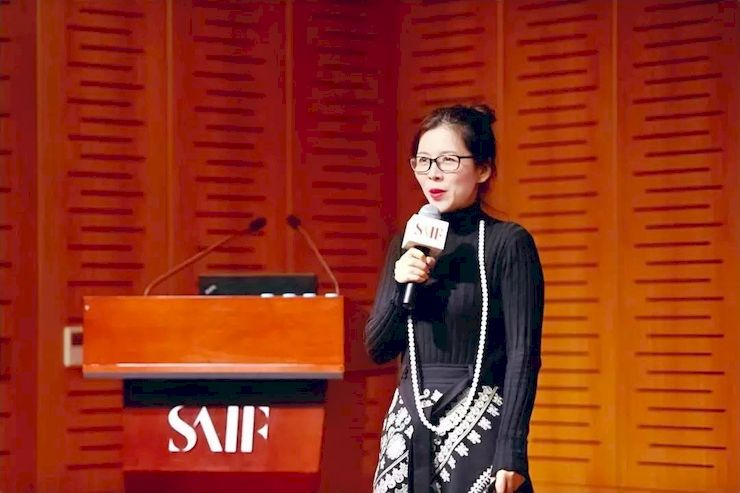
Zhan Jiang: SAIF MF Program is committed to fostering future financial industry leaders
Subsequently, Prof. Zhan Jiang, Faculty Director of SAIF MF Program and Associate Professor of Finance at SAIF, explained that finance is a forward-looking discipline. Finance touches every aspect of our lives and is important at all levels of the economy, and is the force behind many innovations. It brings great benefits and bears great responsibilities to the world.
SAIF’s mission is to build a world-class financial school in China. In the past 10 years, SAIF has developed into a top-notch institute both in China and in Asia. SAIF features faculty with overseas background, who not only have outstanding academic achievements, but also contribute to the world of finance. They have not only industry expertise but also hands-on experience, making contributions to world-leading researches.
Moreover, SAIF has close ties with academia and has invited many Nobel laureates to share their insights. It has also been tightly linked to policy makers and has received strong supports from the government. It has also maintained a great relationship with scholars and industry leaders, and has built international partnership with many of the top institutions, including Columbia Business School and Wharton.
Finally, Prof. Jiang reviewed the profile of the SAIF MF Program. According to the ranking published by the Financial Times in 2018, SAIF MF ranked 1st in Asia and 10th in the world. SAIF looks forward to transforming SAIF MF graduates into financial industry leaders.
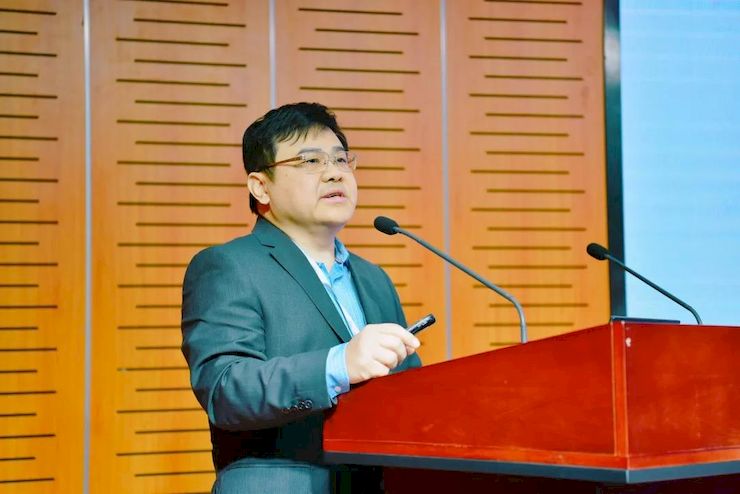
Jing Xiao: As AI is in its infancy, human is more powerful than AI
Dr. Jing Xiao, Chief Scientist of Ping An Group, started with the statement that AI is still in its infancy, without clear academic definition. Literally, AI refers to all artificially manufactured machines that simulate human intelligence.
AI is an interdisciplinary subject between natural sciences and social sciences, with an enormous coverage. Its evolution is divided into three stages, namely weak AI, strong AI and super AI. At present, AI remains rather weak.
In fact, human beings are more capable than AI. A lot of human knowledge is derived from the combination of data, experience and knowledge expression instead of simple models. It is extremely tough to realize super AI, which requires 5G technology, quantum computing, brain cognition and other biological breakthroughs.
Afterwards, Dr. Xiao deconstructed the current developments of AI in other industries. AI hadn’t generated true value until the rise of the internet, from which, it has entered many sectors. However, AI is not an industry by itself. It is an empowering technology to improve and enhance other industries. Different from the internet, AI is a technological innovation that will ramp up the original systems and processes.
According to Dr. Xiao, the evolution of AI is divided into three stages. The first stage covers the basic abilities, such as reading and hearing. The second stage extends to the construction of instruction system, learning methods and building the knowledge map. The third stage is to apply technical capabilities and knowledge maps in business. And the fourth stage is the ability to analyze and create solutions.
Dr. Xiao also elaborated on the concept of deep learning, which is a deep neural network, also known as big data analytics. At present, deep learning does not have the ability to change quickly, so it calls for further enhancement, to make it explainable, quantifiable, capable of small data learning, readable and writable, so that it can be adaptive and quickly improved.
Intensive learning can contribute to the training model by judging whether the feedback is effective or not with pre-defined rules. Migration learning is also a good way to migrate some useful information to small data scenarios when there is not much data in a specific scenario. The generational confrontation network is a valuable mechanism. When there is a large quantity of data with labeling, you can use two models to drive the confrontation. One model is used to simulate and generate the object, while the other model is adopted for judgement.
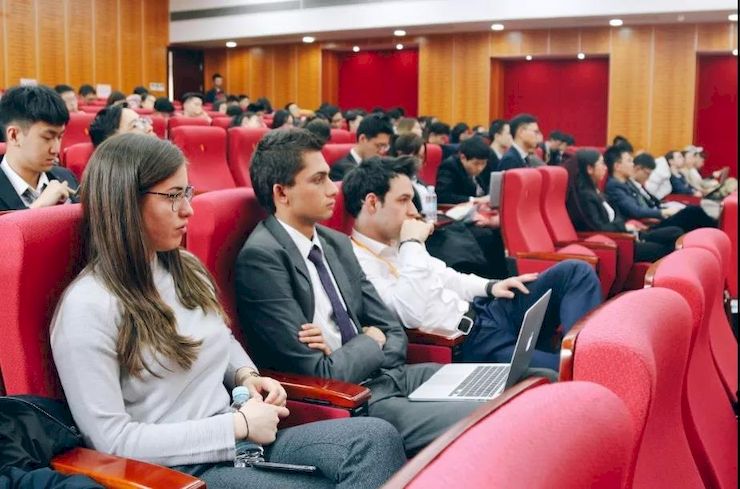
Finally, Dr. Xiao reviewed Ping An's current progress in the field of AI. Ping An’s development over the past 30 years can be divided into three stages. In the first decade, it explored how to operate an insurance company and established its own management systems. In the second decade, it deepened and consolidated its insurance services and explored how to combine finance with technology. And in the last decade, it deepened and consolidated its integrated financial services and studied FinTech. Today, Ping An is expanding into the domain of financial ecosystem in order to build a platform with technologies, create an ecosystem with the platform and focus its ecosystem around finance, healthcare, automotive, real estate and smart cities.
Undoubtedly, AI implies great potentials of development and growth in the future. Thanks to the insights shared by these three experts, the participants deepened their understanding on the financial sector and AI as well as the academic and practical aspects of the financial world. The International Youth Leadership Finance Summit hosted by SAIF is an exceptional platform for mutual learning and common progress for the participants in this new era, which will cultivate young leaders for the industry.
About 2019 IYLFS
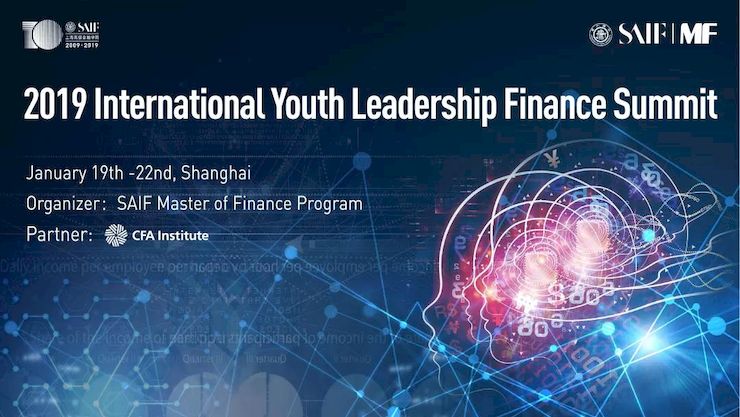
The theme of 2019 IYLFS is AI + Capital Markets. More than 1200 applicants applied to join the summit, and only around 120 students from 22 top universities all over the world have been carefully selected to attend the final competition. The participants include not only local C9 and 985 universities like Tsinghua University, Peking University, Renmin University of China, Nanjing University, Fudan University and Shanghai Jiao Tong University, but also international schools, such as University of Cambridge, London School of Economics and Political Science, McGill University, University of Surrey, Emory University, University of Toronto, Baruch College at The City University of New York, etc.
Launched by SAIF MF Program in 2013, IYLFS is designed to providing a platform of collective learning and advancement for students from all kinds of higher education institutions, which will foster their capabilities of communication and organization. Moreover, it also aims to improve their understanding on financial theories and practices through presentation, competition and face-to-face interaction with business leaders and scholars in the financial sector.






